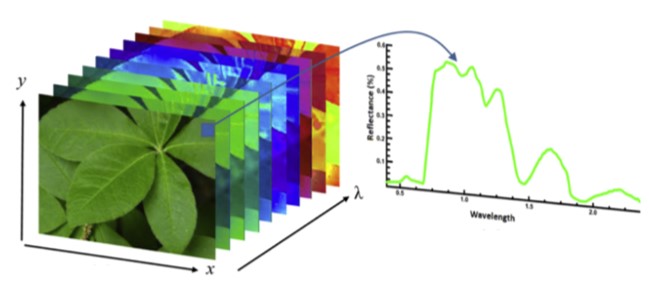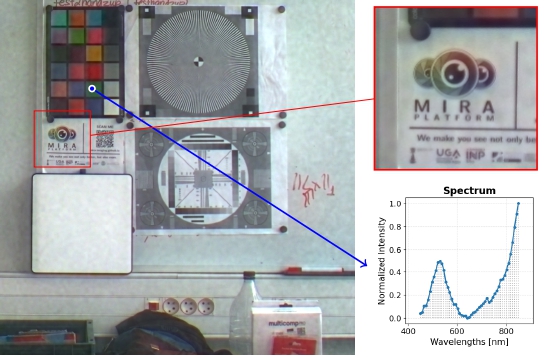
Research Themes
MIRA focuses on multi-modal spectral imaging and fusion, including calibration, registration, and super-resolution. Below is some description of the different research themes tackled by the platform.
Spectral Imaging
We acquire images that go beyond the visible range to capture detailed spectral information for each pixel. Our workflow includes preprocessing and radiometric calibration of raw data to ensure accurate reflectance values and spectral consistency across sensors. This enables reliable analysis of materials, biological tissues, and manufactured products using their unique optical signatures.
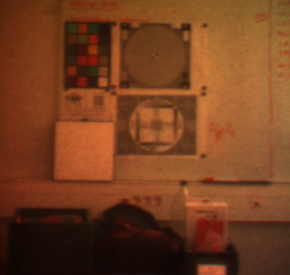
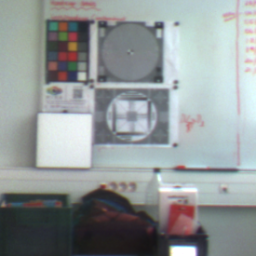
Image Registration
We align images from multiple cameras or sensors so that every pixel represents the same point in the scene. This spatial matching is essential for combining data from color, infrared, and hyperspectral cameras accurately, ensuring high-quality fusion and comparison between modalities.



Super-resolution
We combine information from multiple low-resolution images or sensors to produce sharper, higher-resolution results. This enhances image detail and clarity, enabling improved visualization, quantitative analysis, and advanced applications such as defect detection and material mapping.
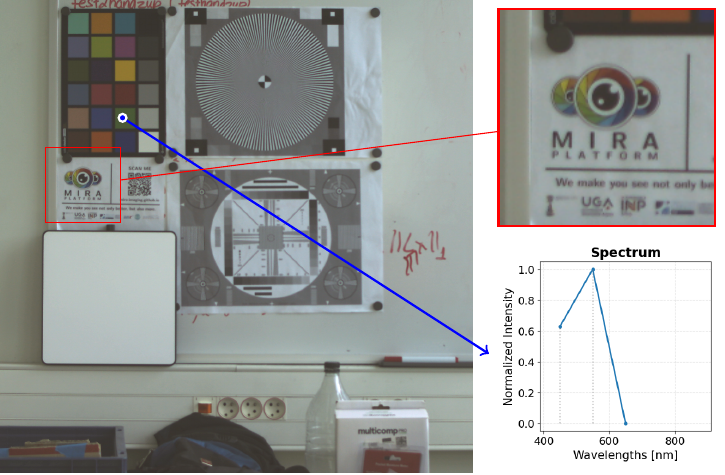

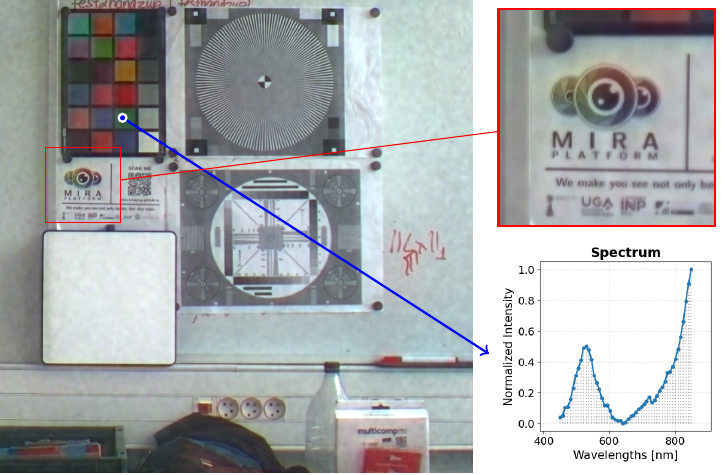
Check here for an example case scenario and interactive demo.
Super-resolution
- Example Case Scenario -
In multimodal imaging, different cameras often capture complementary information. Cam 1 provides rich spectral data but lower spatial detail, while Cam 2 offers sharper spatial resolution with fewer spectral bands. Through super-resolution fusion, these data sources are combined to produce an image that is both spatially detailed and spectrally rich, as summarized below:
| Camera / Result | Spectral Resolution | Spatial Resolution | Description |
|---|---|---|---|
| Cam 1 | High | Low | Captures detailed spectral information for material analysis. |
| Cam 2 | Low | High | Captures fine spatial structures with fewer spectral bands. |
| Fused Image | High | High | Combines both to yield enhanced spatial and spectral quality. |
The video and sliders below demonstrate this process — showing how two complementary inputs are merged into a high-resolution spectral image.
Video Illustration
Comparison Sliders
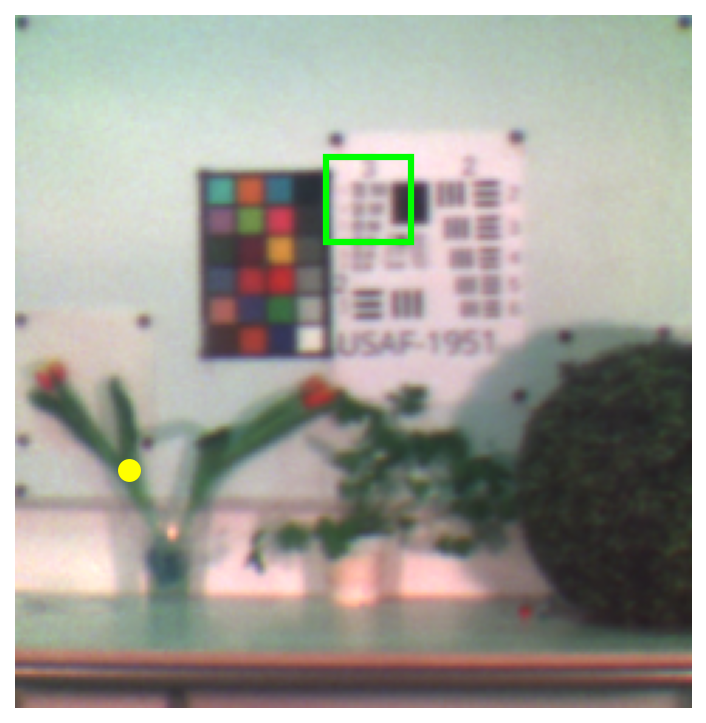 Cam 1 (LR)
Cam 1 (LR)
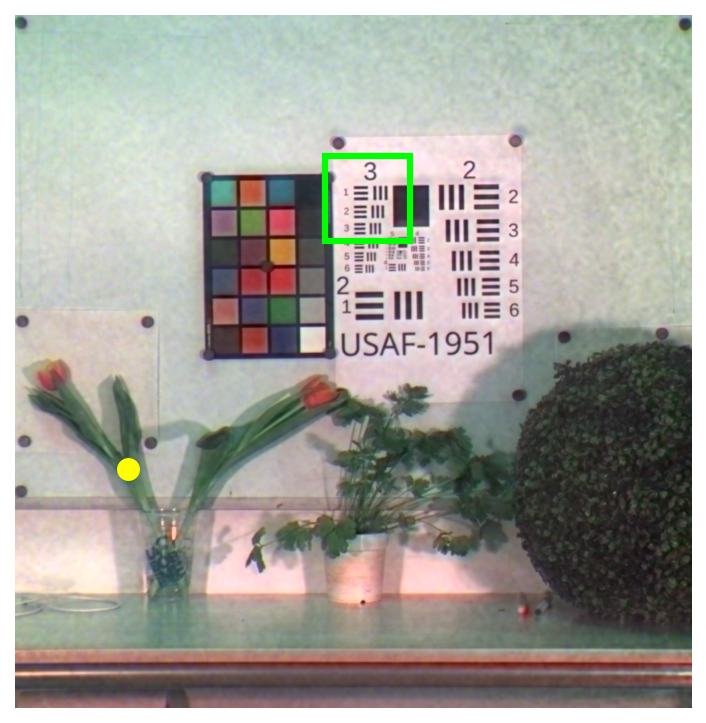 Fusion (HR)
Fusion (HR)
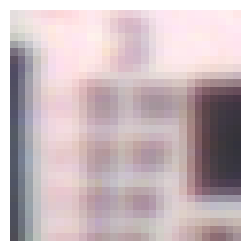 Cam 1
Cam 1
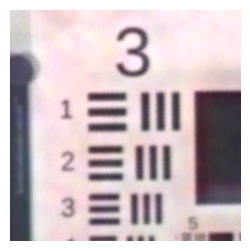 Fusion
Fusion
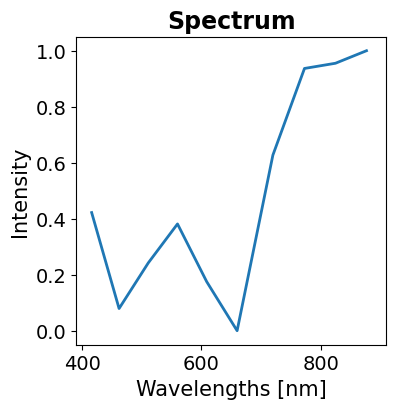 Cam 2
Cam 2
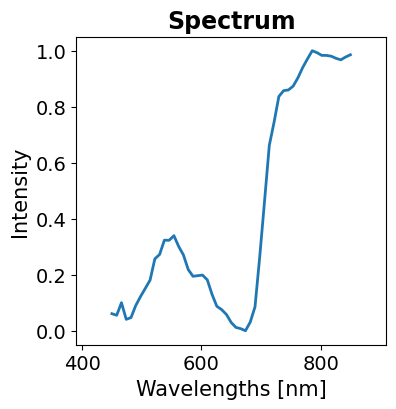 Fusion
Fusion

